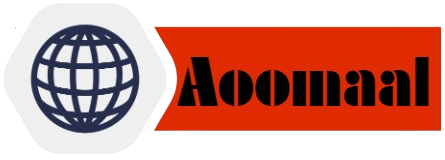How to Choose the Best 401(k) Plan for Your Future
Key Takeaways:
- Understanding the different 401(k) plan types can help you make an informed decision.
- Key factors include plan fees, employer match, and investment options.
- Regularly monitoring your 401(k) balance is crucial to ensure it aligns with your retirement goals.
Introduction to 401(k) Plans
A 401(k) plan is an essential tool for building a secure retirement, especially for employees in the private sector. With many employers offering these plans as part of their benefits package, it’s crucial to understand the various options available. Knowing this can help you make the best choice for your future. For instance, identifying the right 401(k) plan for your company can offer significant advantages such as higher employer contributions and better investment options, leading to a more robust retirement fund.
Different types of 401(k) plans, such as traditional and Roth 401(k), offer unique benefits and have other tax implications. Comprehending the subtleties of these schemes can assist you in making a well-informed choice. Let’s explore these options and see how they fit into your financial planning strategy.
Conventional 401(k) plans permit you to make contributions with pre-tax funds, lowering your taxable income when contributed, but withdrawals in retirement are taxed as regular income. Conversely, Roth 401(k) plans are funded with after-tax dollars, meaning you won’t get an upfront tax break, but qualified withdrawals during retirement are tax-free. Many employers also provide matching contributions, significantly boosting your savings over time. Knowing the contribution limits established by the IRS is crucial, as reviewing them can lead to punitive consequences. Additionally, understanding the vesting schedule of your employer’s contributions can help you maximize the benefits from your 401(k) plan.
Types of 401(k) Plans
When choosing a 401(k) plan, you typically have two primary options: traditional and Roth. Each type has its own set of rules and advantages.
Traditional 401(k)
401(k) contributions using pre-tax dollars reduce your annual taxable income. This offers an immediate tax advantage, potentially lowering your current tax bill. Yet, withdrawals made in retirement are subject to taxation as regular income. This choice is commonly preferred by people who anticipate being in a lower tax bracket in their retirement years.
Roth 401(k)
On the other hand, deposits to a Roth 401(k) are funded using money that has already been taxed, which results in no immediate tax deduction. Nevertheless, the reward will be received at a later time. However, the payoff comes later: qualified distributions during retirement are tax-free. This could be very advantageous if you expect to be in a higher tax bracket during retirement. The tax-free growth on investments over time can significantly boost your retirement savings.
Factors to Consider
When selecting a 401(k) plan, various factors include fees, employer matching, and available investment options. Each can impact the overall growth and effectiveness of your retirement savings.
Plan Fees
Plan fees can significantly affect your retirement savings over time. These fees include administrative costs, investment management fees, and other hidden charges. High fees can erode your returns, so it’s important to look for plans offering low-cost options.
Employer Match
One of the most valuable benefits some employers offer is the employer match. This is free money added to your retirement savings. For example, an employer might match 50% of your contributions to a certain percentage of your salary. Not taking full advantage of this match means leaving free money on the table. Always aim to contribute enough to get the full employer match.
Monitoring Your Plan
Enrolling in a 401 (k) and forgetting about it is not enough. Regularly monitoring your 401(k) balance and investments is essential to ensure they align with your retirement goals. Market conditions and personal financial situations can change, and adjusting your contributions and investment choices is critical.
Online Tools
Many financial institutions offer online tools and calculators that can help you track your 401(k) performance. These tools provide a snapshot of your current balance, projected growth, and other critical metrics, allowing you to make informed investment decisions.
Regular Reviews
Schedule regular reviews of your 401(k) plan at least annually. During these reviews, you can rebalance your investments, increase contributions, or adjust your strategy based on new financial goals or market trends. Keeping a regular check ensures that your retirement plan remains on track.
The Role of Financial Advisors
Considering the complexities involved in 401(k) plans and retirement savings, consulting a financial advisor can be beneficial. A professional advisor can offer personalized advice tailored to your unique financial situation, helping you develop a comprehensive retirement strategy.
Long-Term Benefits
Investing in a 401(k) plan offers numerous long-term benefits. These include tax advantages, compounding growth, and potential employer contributions. Over the years, these elements can help you build a substantial retirement nest egg.
Tax Advantages
Both traditional and Roth 401(k) plans offer significant tax benefits. Traditional 401(k) plans provide an immediate tax break by reducing your taxable income, while Roth 401(k)s provide tax-free withdrawals during retirement. One might be more advantageous, depending on your current tax bracket and retirement plans.
Compounding Growth
The power of compounding cannot be overstated. As your investments earn returns, those returns are reinvested, earning even more over time. This compounding effect can significantly increase your retirement savings, especially if you start contributing early.
Conclusion
Choosing the right 401(k) plan involves understanding the options available, considering key factors, and avoiding common mistakes. By doing so, you can create a robust strategy for your retirement that aligns with your financial goals and helps ensure a more secure future. Understanding your choices and regularly monitoring your plan can lead to significant benefits throughout your career and into your retirement.
Evaluating the fees associated with different plans is essential, as high costs can erode your savings over time. Additionally, consider the investment options offered by each plan, ensuring they align with your risk tolerance and long-term objectives. Seeking advice from a financial advisor can provide personalized insights and help you make informed decisions. Staying informed about changes in tax laws and retirement regulations can also impact your 401(k) strategy, making regular reviews of your plan critical. A well-chosen 401(k) plan can be a cornerstone of your retirement savings, offering peace of mind and financial stability in your later years.






